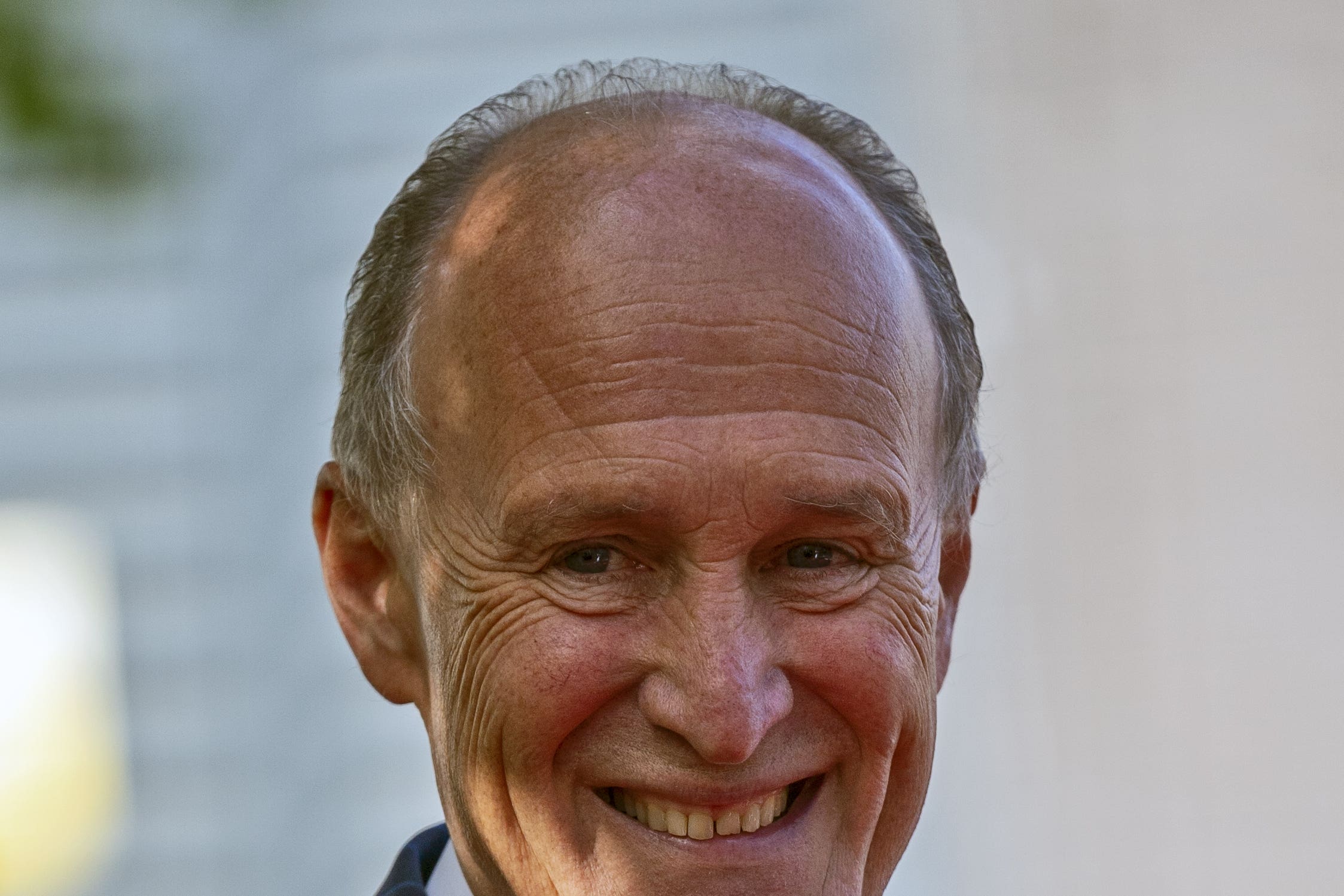Public service broadcasting is facing an existential threat – former ITV chairman
Sir Peter Bazalgette delivered a speech discussing the future of public service broadcasters.

The former chairman of ITV has said “the public service broadcasting system is undoubtedly facing an existential threat”.
Sir Peter Bazalgette, who recently stood down as chairman of ITV after six years in the role, delivered a speech discussing the future of public service broadcasters (PSBs) at the Voice of the Listener & Viewer’s Jocelyn Hay Lecture.
Speaking about the impact of international streaming platforms on the PSBs – now referred to as Public Service Media, or PSM, by media watchdog Ofcom – Sir Peter, 69, said: “In a nutshell, how can the PSMs survive in an era, a post-network era, when their TV services are mostly streamed via foreign-owned internet platforms?
“BBC iPlayer, All4 and the imminent ITVX all have to negotiate carriage with the likes of Amazon, Apple, Samsung and LG, as well as Sky and Virgin.
“These are all powerful, foreign-owned platforms who can take shares of PSM revenue and withhold PSM viewer data, in the largely unregulated arena of the internet.”
Sir Peter also addressed comments made by Prime Minister Liz Truss in regard to economic growth being a priority under her government.
He questioned how PSBs are expected to deliver and contribute to such economic growth if they are not given “a level playing field” from which to do so.
“We’re told that economic growth is the number one priority of our current government,” he said.
“Don’t forget what I said earlier about the PSM’s core role in the screen sub-sector, growing fast at the moment.
“So the danger here is not just the loss of cultural value but a deficit in economic growth which the PSMs can deliver, given a level playing field.”
To stress the importance of, and need for, clear terms from government on the future of PSBs, Sir Peter noted the difficult decision ITV is currently facing on whether to confirm its position as a PSB when its current licence expires next year.
He said: “ITV needs to decide whether to apply for a new PSM licence next year to start in 2024. A difficult decision to take when you don’t know what the terms are.
“ITV is in a stronger position than most PSMs because, with its successful international production company and its robust cash flows, it can choose any number of commercial paths and partnerships.
You don't know what you've got until it's gone
“But you’d think it’s in the interests of UK PLC to keep ITV in the PSM fold, continuing to deliver the public good that it excels at.”
He later added: “It’s up to all of us to keep pressing government, and colleagues in DCMS who well understand this, that time is of the essence.”
Sir Peter, who was president of the Royal Television Society between 2010 and 2017, also touched on the continuing debate surrounding the BBC licence fee and acknowledged “that to question the regressive nature of the licence fee is legitimate”.
However, he left the main debate to one side and instead asked for “support for hypothecated funding, not for some voluntary subscription”.
He went on to credit “guaranteed public funding for an organisation whose remit is specifically to hold the government to account” as “the most laudable expression of a liberal democracy that I can think of”.
He added: “You don’t know what you’ve got until it’s gone.
“And I just think we need to remind our elected elders and betters that there are some really basic philosophical, civil arguments in favour of the BBC that need to be stated before you get down to the granular cut and thrust of its funding.”
Sir Peter stepped down from his role as chairman of ITV at the end of last month.
He has also previously served as chairman of Arts Council England and chief creative office of television production company Endemol UK.
Bookmark popover
Removed from bookmarks